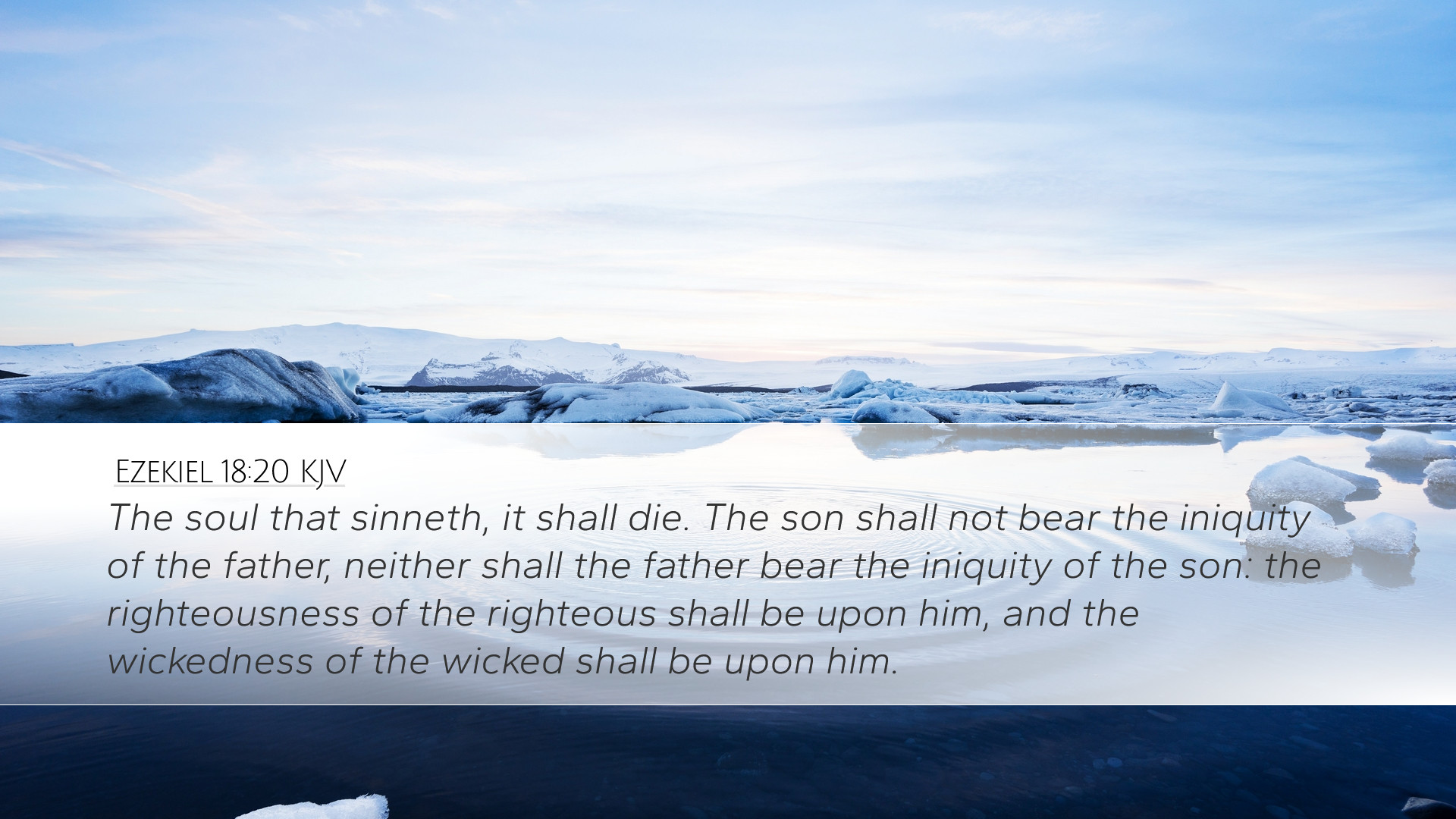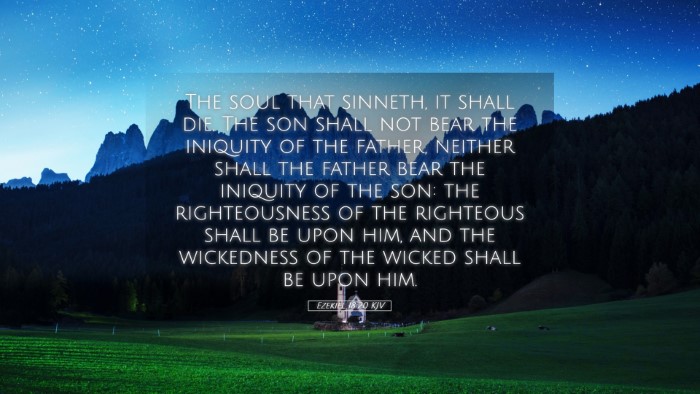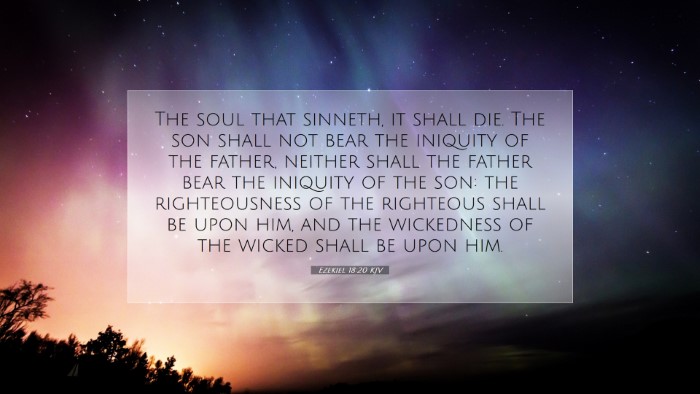Ezekiel 18:20 Commentary
Verse Reference: Ezekiel 18:20 - "The soul that sins shall die: the son shall not bear the iniquity of the father, neither shall the father bear the iniquity of the son: the righteousness of the righteous shall be upon him, and the wickedness of the wicked shall be upon him."
Introduction
This verse encapsulates a profound theological principle regarding individual responsibility and divine justice. It serves not only as a critical element in Ezekiel's message but reflects broader biblical themes concerning sin, righteousness, and personal accountability.
Individual Responsibility
Matthew Henry emphasizes the significance of personal accountability before God. He notes that this verse rejects the notion that one's fate is determined by the sins or righteousness of others. Each person is held responsible for their own actions, which resonates deeply with the foundational teachings of justice in both the Old and New Testaments.
- Personal Accountability: Each soul is accountable for its own sins.
- Impact of Actions: Righteousness and wickedness are personally attributed.
- No Generational Sin: This refutes any idea of inherited guilt.
The Nature of Sin and Consequences
Albert Barnes elaborates on the concept of the "soul that sins shall die." He explains that death here refers both to physical death and spiritual separation from God. The consequences of sin are dire, emphasizing the gravity of turning away from God’s commands.
- Physical and Spiritual Death: Sin leads to both forms of death.
- God's Justice: God’s judgment is impartial and direct.
- Warning against Sin: The emphasis encourages a serious approach to sin and its ramifications.
The Righteous vs. The Wicked
Adam Clarke comments on the distinction made between the wicked and the righteous, noting that the text asserts the individual nature of both righteousness and wickedness. Righteous acts bring life and favor from God, while wicked acts lead to death and separation from God.
- The Righteous: Their righteousness is attributed solely to them and leads to life.
- The Wicked: Their wickedness is also personally theirs, leading to judgment.
Theological Implications
This verse is critical for understanding the character of God, particularly His justice and mercy. It reveals that God's judgments are not arbitrary but are based on individual actions and choices. The emphasis on individual responsibility upholds the integrity of God's justice system.
- God's Justice: Aligns with the concept of divine retribution.
- Grace and Repentance: Offers a path to redemption for the sinner.
- Covenantal Assurance: Underlines personal relationship with God rather than collective blame.
Contemporary Applications
The message of Ezekiel 18:20 remains relevant today, particularly in discussions around ethics, morality, and personal responsibility. For pastors and teachers, this verse can serve as a foundation for preaching about the importance of individual repentance and faith in God.
- Preaching Individual Accountability: Encouraging believers to take ownership of their spiritual lives.
- Teaching Grace: Emphasizing that everyone has the opportunity to turn to God for forgiveness.
- Fostering Community Responsibility: Cultivating a culture where individuals support one another in their spiritual journeys.
Conclusion
Ezekiel 18:20 profoundly underscores the principles of individual responsibility, the nature of sin and its consequences, and the character of God's justice. For pastors, students, theologians, and Bible scholars, this verse serves as a rich text for exploring the dynamics of personal faith and accountability before God, allowing for deep reflection on the nature of righteousness in the life of a believer.


